Bentley Eight – Classic Car for Sale
The Bentley Eight marked Bentley’s approach to a broader client base by introducing a saloon that was more accessible, yet retained the unmistakable stature of the marque. Built from 1984 to 1992, it shared much with the Mulsanne but offered subtle differences in suspension, trim, and pricing, making exclusivity more attainable for those new to the Bentley world.
Suchergebnisse
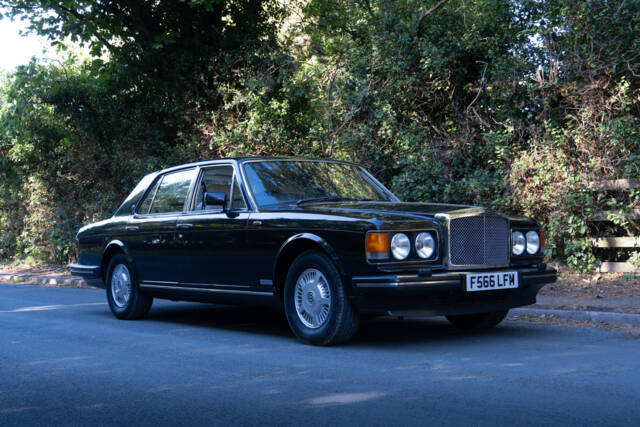
1989 | Bentley Eight
1989 Bentley Eight - 37000 miles
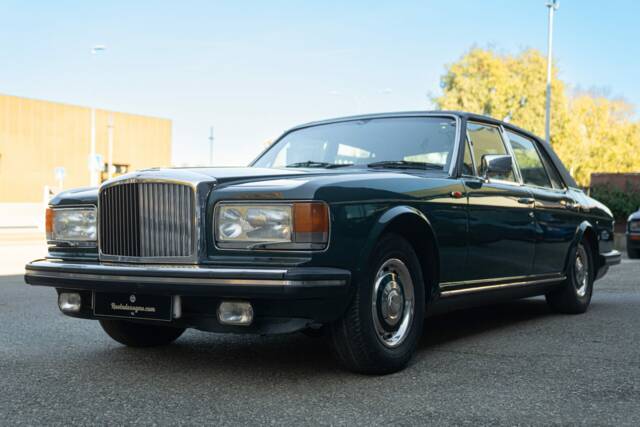
1980 | Bentley Eight
Bentley EIGHT SALOON
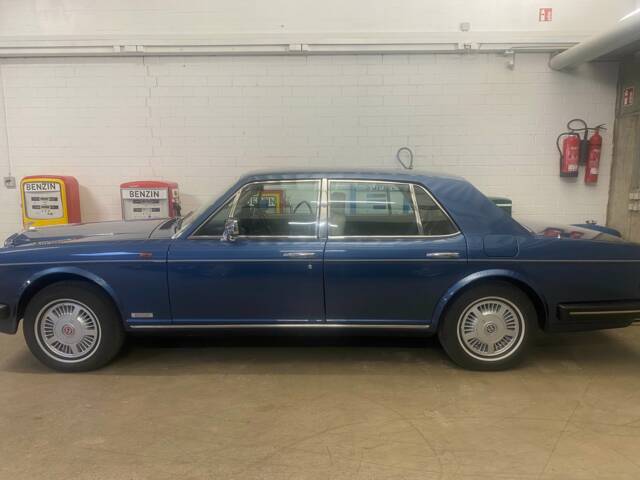
1985 | Bentley Eight
Bentley Eight
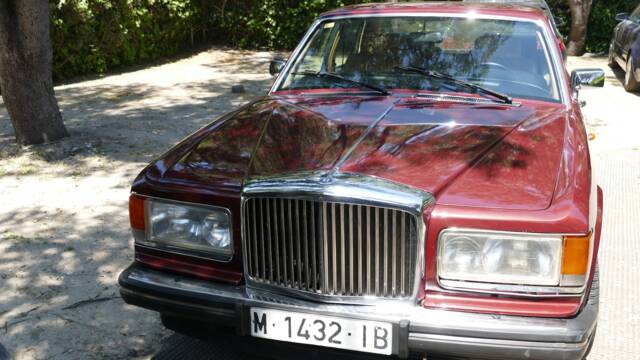
Bentley Eight listing references from Classic Trader
Below you will find listings related to your search that are no longer available on Classic Trader. Use this information to gain insight into availability, value trends, and current pricing for a "Bentley Eight" to make a more informed purchasing decision.
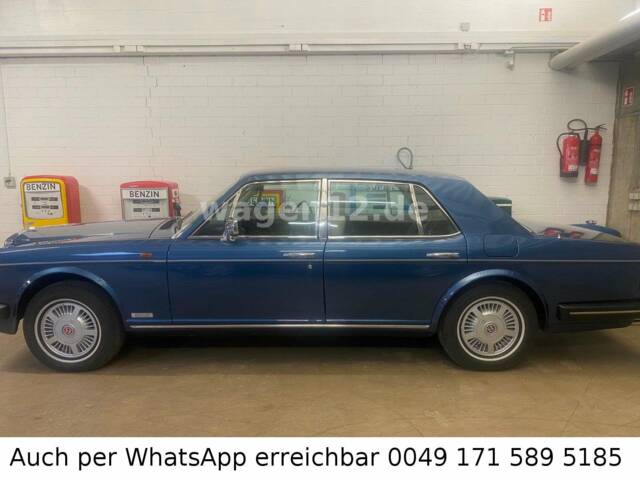
1985 | Bentley Eight
Bentley Eight TOP!!!
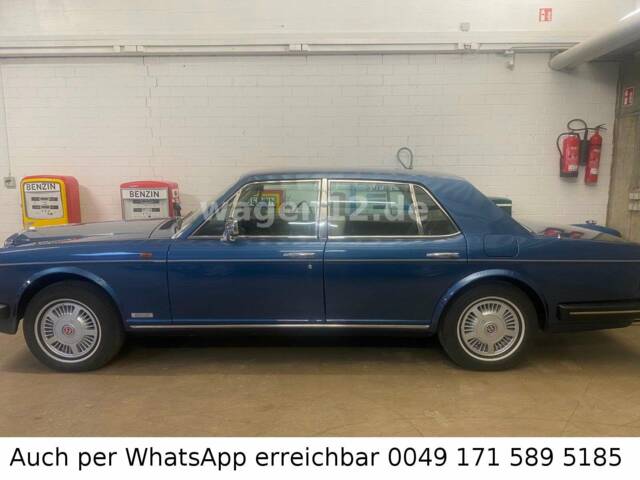
1985 | Bentley Eight
Bentley Eight TOP!!!
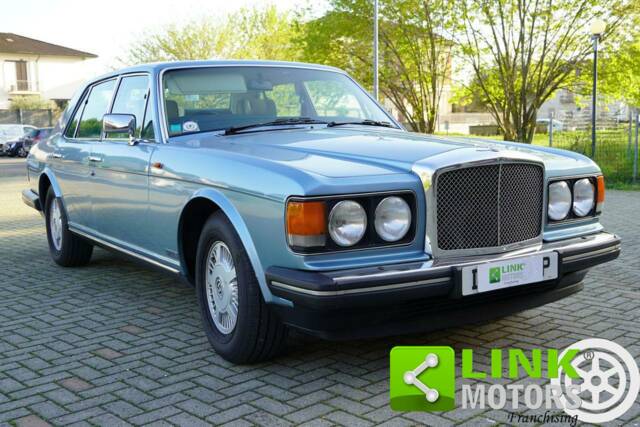
1987 | Bentley Eight
BENTLEY Eight 6.7 V8 1987 - MANUTENZIONE CERTIFICATA
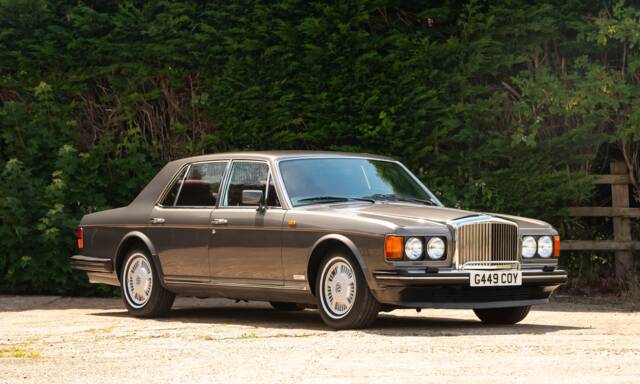
1990 | Bentley Eight
1990 Bentley Eight(No Reserve)
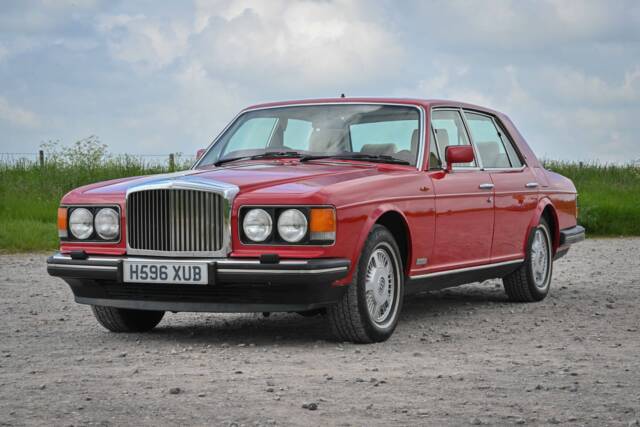
1990 | Bentley Eight
Capable & Prestigious - RREC Rally Auction 2024
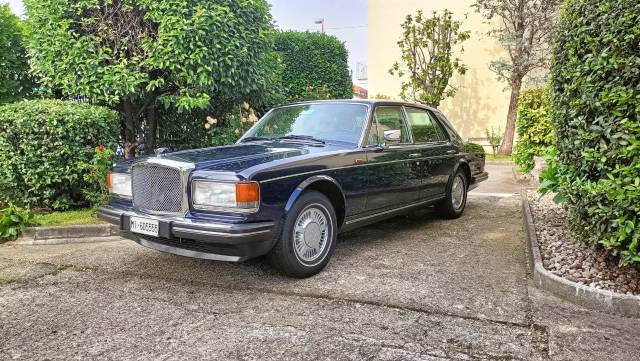
1986 | Bentley Eight
Targa originale italiana - unipropietario dal 2003
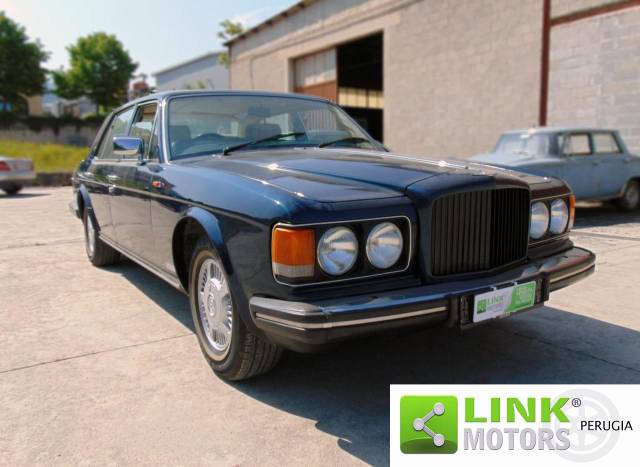
1986 | Bentley Eight
BENTLEY Eight - Guida a Destra, Iscritta ASI
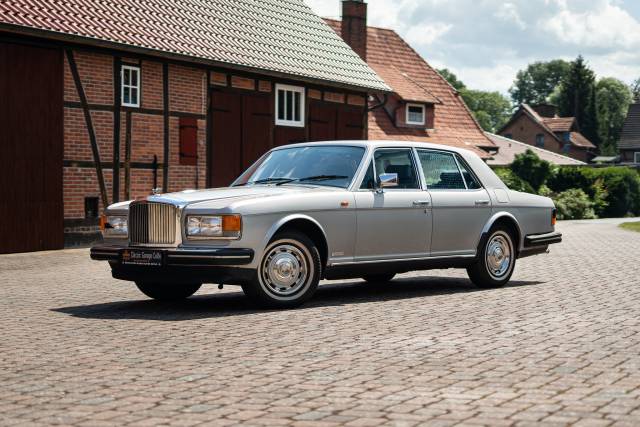
1985 | Bentley Eight
Sehr gepflegter Bentley mit deutscher Zulassung und toller Farbkombi
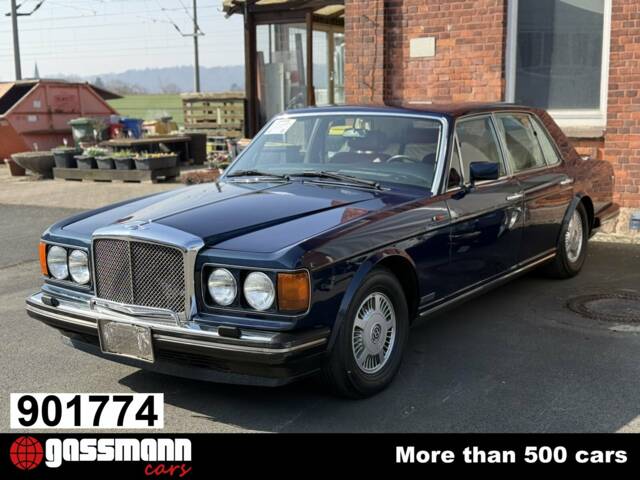
1991 | Bentley Eight
Eight
Bentley Eight Classic Cars: Prices & Market Values
The Story Behind the Bentley Eight
Launched in 1984, the Bentley Eight was a response to changing luxury car markets in the UK and Europe. It aimed to make the renowned British luxury experience accessible to a new generation of buyers, without diluting the traditions inherited from models like the Mulsanne. The Eight's introduction price undercut similar luxury saloons considerably, targeting customers of brands like Mercedes-Benz and Jaguar. Notably, it featured a wire-mesh grille in place of Bentley’s usual vertical slats—a visual cue and a nod to pre-war Bentley sports designs, while also reducing production costs. Cost reductions extended to the interior, with a simpler dashboard and fewer veneer finishes. Despite this, the car maintained Bentley's standards of craftsmanship and reliability. Only available in the UK at first, demand soon saw the model spread to mainland Europe and the USA. Production continued until January 1993, totaling 1,736 units before it was succeeded by the Bentley Brooklands.
Development and Lineage of the Bentley Eight
The Eight is derived directly from the Bentley Mulsanne, introduced in 1980, which itself was named after the famous Mulsanne corner at Le Mans where Bentley triumphed five times in the 1920s. The Mulsanne/Eight generation shared underpinnings with the Rolls-Royce Silver Spirit. The Eight distinguished itself as the more affordable, less lavishly equipped offshoot intended for a younger clientele or those seeking understated luxury. In 1992, Bentley replaced the Eight with the Brooklands, which brought further updates and a refreshed design. During its lifespan, the Eight underwent several updates, including the addition of anti-lock brakes (1986), fuel injection, and, later, automatic ride height control.
What Sets the Bentley Eight Apart
The Bentley Eight’s most immediately recognisable feature is its mesh grille, a direct contrast to the Mulsanne’s vertical-slatted front. This design pays homage to pre-war sporting Bentleys and serves as a subtle marker of distinction. Other highlights include the robust 6.75-litre V8 engine derived from Rolls-Royce, plush yet simplified Connolly-leather interiors, and a driving experience enhanced by a firmer suspension setup, aiming for improved handling over the Mulsanne. The Eight was always delivered as a four-door saloon on a short wheelbase and initially offered with restrained equipment and a reduced choice of paint colours. Over the years, the Eight gained features such as ABS, power memory seats, and automatic ride control. Available in both left- and right-hand drive, the Eight was approved for everyday usability, benefiting from mechanical simplicity rooted in Bentley/Rolls-Royce tradition.
Technical Data
Special Editions and Collectible Models
No official special editions of the Bentley Eight were factory-released; its appeal lies instead in the incremental improvements introduced over its production, from basic cloth interiors to the adoption of leather, ABS, and upgraded electronics. The very last units (post-August 1992) are particularly sought after for their rare four-speed automatic transmissions.
Weaknesses and Typical Issues
Maintenance on the Bentley Eight is typically straightforward by classic luxury car standards due to its use of robust, well-understood Bentley/Rolls-Royce technology. Typical issues reported among owners are related to age: electrical niggles, worn suspension bushings, and possible corrosion on poorly stored vehicles. As with all classic Bentleys, regular servicing and the use of proper fluids and parts are crucial to retain operational reliability and comfort.
Engine, Transmission & Driving Experience
Powered by the durable 6.75-litre V8, the Eight delivers smooth, ample torque throughout the rev range. The automatic transmission (three-speed initially, four-speed in later units) and rear-wheel-drive setup were shared with its Mulsanne sibling, but a firmer suspension lent the Eight a notably more direct steering and slightly sharper cornering feel—settings more attuned to drivers interested in active motoring, despite the car's luxury saloon status. Performance figures were respectable for its class and era, with a 0–100 km/h time of around 10 seconds and a top speed around 195–205 km/h. The combination of performance and comfort made the Eight ideal for relaxed yet confident motorway cruising. - Early Eights (for original simplicity)
- Late production models (four-speed automatic, improved features)
- Left-hand-drive variants (for continental collectors)
Design, Interior and Accessories
The Eight’s design is reserved yet unmistakably Bentley, with its rectangular four-door saloon body and the distinguishing wire-mesh grille. Originally, the interior was trimmed in durable fabric with simpler dashboard treatment to maintain affordability. Later models saw a return to classic Bentley elegance, with full Connolly leather upholstery, added wood veneer, and new electronic interfaces. Paint options were deliberately limited at introduction to reduce cost, but the car’s understated appearance remained consistent. Customary Bentley options, such as lambswool floor mats and picnic tables, were available for those willing to add personal touches. The Eight’s understated design was a deliberate move to attract clients seeking traditional Bentley presence without excessive ornamentation.
Other Notable Features
Practically, the Bentley Eight was praised for its versatility—marketed as suitable for everyday use thanks to its solid construction and user-friendly nature. The model attracted both established Bentley enthusiasts and first-time buyers, especially as early examples proved more affordable to purchase and maintain than other models from the marque's line-up. Mechanical interchangeability with the Rolls-Royce Silver Spirit keeps the Eight accessible for spare parts and servicing.
Summary
The Bentley Eight embodies Bentley’s successful attempt to reach beyond its traditional clientele, offering a classic British luxury saloon that’s more approachable yet stands true to the marque’s engineering values. Its blend of proven V8 engineering, understated design, and gradual introduction of modern features makes it a distinctive option in the classic car market, drawing continued interest and respect among enthusiasts and collectors.



